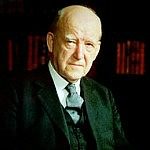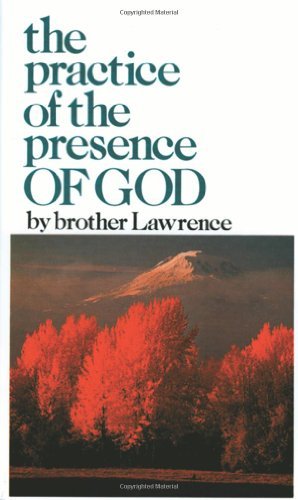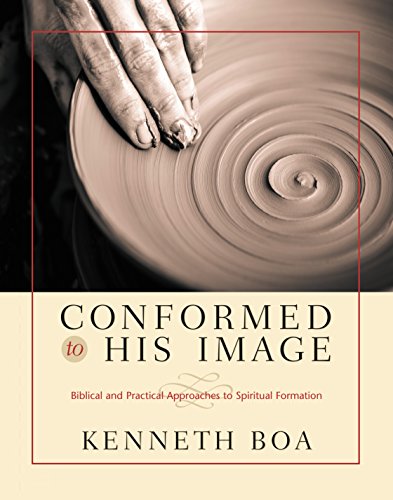Quotes about God-Knowing_Him
We tend to be a generation of Christians who major on minor matters but do not seem to possess the true measure of the gospel in the knowledge of God. We do not really know God. At best we know about Him.
[We] may have knowledge of God and not be saved, but he can never be saved without knowledge of God.
Your knowledge of God should always lead to greater affection for God.
In God you come up against something which is in every respect immeasurably superior to yourself. Unless you know God as that – and, therefore, know yourself as nothing in comparison – you do not know God at all. As long as you are proud, you cannot know God. A proud man is always looking down on things and people: and, of course, as long as you are looking down, you cannot see something that is above you.
When you come to knowing God, the initiative lies on His side. If He does not show Himself, nothing you can do will enable you to find Him.
Our supreme need, our only need, is to know God, the living God, and the power of His might. We need nothing else. It is just that, the power of the living God, to know that the living God is among us and that nothing else matters… I say, forget everything else. Forget everything else. We need to realize the presence of the living God amongst us. Let everything else be silent. This is no time for minor differences. We all need to know the touch of the power of the living God.
God is truly knowable but not exhaustively comprehensible.
God the Father by John MacArthur and Richard Mayhue taken from Biblical Doctrine by John MacArthur and Richard Mayhue, copyright 2017, Crossway Books, a division of Good News Publishers, Wheaton Illinois 60187, www.crosswaybooks.org. Page 145.
The God we encounter everywhere in Scripture, though mysterious to us, though we strain at the leash of language to describe Him faithfully, though we know He is more than our small thoughts can achieve – still, God is truly knowable according to His own self-revelation. We can receive His testimony to Himself at face value without fear of missing who He really is.
The deepest level of awareness of God is achieved only by intimate communion with the Son (Kenneth Grayston).
The Johannine Epistles, Eerdmans, www.eerdmans.com, 1984, p. 147.
What were we made for? To know God. What aim should we have in life? To know God. What is the eternal life that Jesus gives? To know God. What is the best thing in life? To know God. What in humans gives God most pleasure? Knowledge of Himself.
What matters supremely, therefore, is not, in the last analysis, the fact that I know God, but the larger fact which underlies it – the fact that He knows me.
We are cruel to ourselves if we try to live in this world without knowing about the God whose world it is and who runs it. The world becomes a strange, mad, painful place and life in it a disappointing and unpleasant business, for those who do not know God.
Taken from Knowing God by JI Packer. Copyright(c) 1973. Used by permission of InterVarsity Press, PO Box 1400, Downers Grove, IL 60515, p.19. Get this book!
A little knowledge of God is worth more than a great deal of knowledge about Him.
Taken from Knowing God by JI Packer. Copyright(c) 1973. Used by permission of InterVarsity Press, PO Box 1400, Downers Grove, IL 60515, p. 26. Get this book!
Human things must be known to be loved; but Divine things must be loved to be known.
Education about God precedes and serves exultation in God. Learning truth precedes loving truth. Right reflection on God precedes right affection for God. Seeing the glory of Christ precedes savoring the glory of Christ. Good theology is the foundation of great doxology. Knowledge is utterly crucial. But it is not an end in itself. It serves faith and love. And if it doesn’t, it only puffs up, as Paul says in 1 Corinthians 8:1. Where education does not produce heartfelt exultation in God, it degenerates into proud intellectualism. And where exultation is not sustained and shaped by solid Biblical education, it degenerates into proud emotionalism. God means to be known and loved. Seen and savored. Pondered and praised.
If your concept of God is only one that sees the Divine as a relational buddy that exists for the sole purpose of keeping you from hell and granting all your wishes while on earth, you will fall miserably short. If your concept of God is not resulting in fear, passion, excitement, reverence and awe, you will fall miserably short. I suggest based on the way many professing Christians obey the Bible, pray, conduct themselves in worship, view the local church and share their faith, the god they claim to worship is far from the God portrayed in the Bible, and the motivation for wholehearted biblical living is absent.
Christian living
Knowing God quenches the thirsty soul, satisfies the inquisitive mind, feeds our instinct to praise and directs our daily actions along the proper path.
It only stands to reason among those who are truly saved that they will spend the duration of their existence with the desire to grow in their knowledge of Jesus Christ. This is a clear indication that we not only love our Savior, but find Him so magnificent that we wish to continually explore new elements of His perfections. Expanding our relationship with Him through biblical awareness and personal experience is at the heart of knowing Christ, is at the heart of a genuine relationship with Him.
Human genius cannot account for the knowledge of God. Neither native abilities, education, nor human will power can attain insight into the character and heart of God. God is known by “a divine and supernatural light” (Jonathan Edwards). The youngest and lowliest of children can exceed the oldest and most elevated of scientists when it comes to the knowledge of God!
Divine Election: How and Why Does God Choose? – Part I, November 6, 2006, www.enjoyinggodministries.com. Used by Permission.
[Jonathan] Edwards bases this distinction on the difference between two ways of knowing. On the one hand, there is knowledge that is merely speculative, notional, a mere cognitive awareness of some truth. On the other hand, there is what Edwards calls “the sense of the heart” in which one recognizes the beauty or amiableness or sweetness of that truth and feels pleasure and delight in it. It is the difference between knowing or believing that God is holy and having a “sense” of or enjoying His holiness. “There is a difference between having a rational judgment that honey is sweet, and having a sense of its sweetness.” Thus “when the heart is sensible of the beauty and amiableness of a thing, it necessarily feels pleasure in the apprehension.”
Divine Election: How and Why Does God Choose? – Part I, November 6, 2006, www.enjoyinggodministries.com. Used by Permission.
What comes into our minds when we think about God is the most important thing about us.
The knowledge of God cannot be denied; it can only be distorted.
When People are Big and God is Small, P&R Publishing, 1997, p. 85. Get this book!
We have turned to a God that we can use rather than a God we must obey; we have turned to a God who will fulfill our needs rather than to a God before whom we must surrender our rights to ourselves. He is a God for us and for our satisfaction, and we have come to assume that it must be so in the church as well. And so we transform the God of mercy into a God who is at our mercy. We imagine that He is benign, that He will acquiesce as we toy with His reality and co-opt Him in the promotion of our ventures and careers.
During the Protestant Reformation of the 1500s, Martin Luther articulated a timeless distinction between two approaches to knowing God. He labeled one a “theology of glory,” and applied it to those who believe they can attain to a glorious knowledge of God by human goodness, religious effort, mystical experiences, or the wisdom of human reason. According to this view, God manifests Himself most often through blessings, victory, success, miracles, power, and other exhilarating experiences of “glory.” By contrast, Luther argued that the biblical way to know God goes through a “theology of the cross.” God has “hidden” Himself where human wisdom would not expect to find Him, that is, in the lowliness and suffering of the man Jesus Christ, and especially in His humiliating death on a Roman cross. As Luther put it, “true theology and recognition of God are in the crucified Christ.” So rather than finding God by ascending to Him through our efforts, wisdom, or self-initiated experiences, God has descended to us in Jesus whose glory was in the least-expected of places – the cross – and in a way where He can be found by faith alone.




















